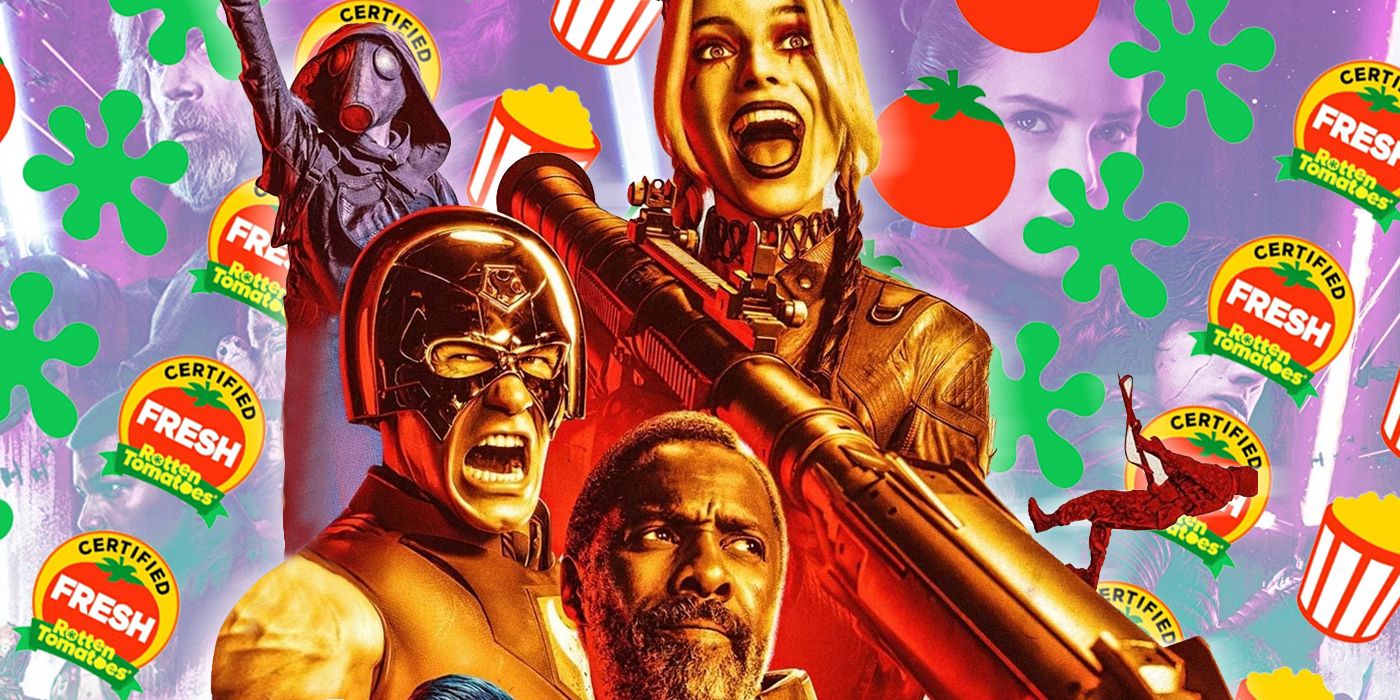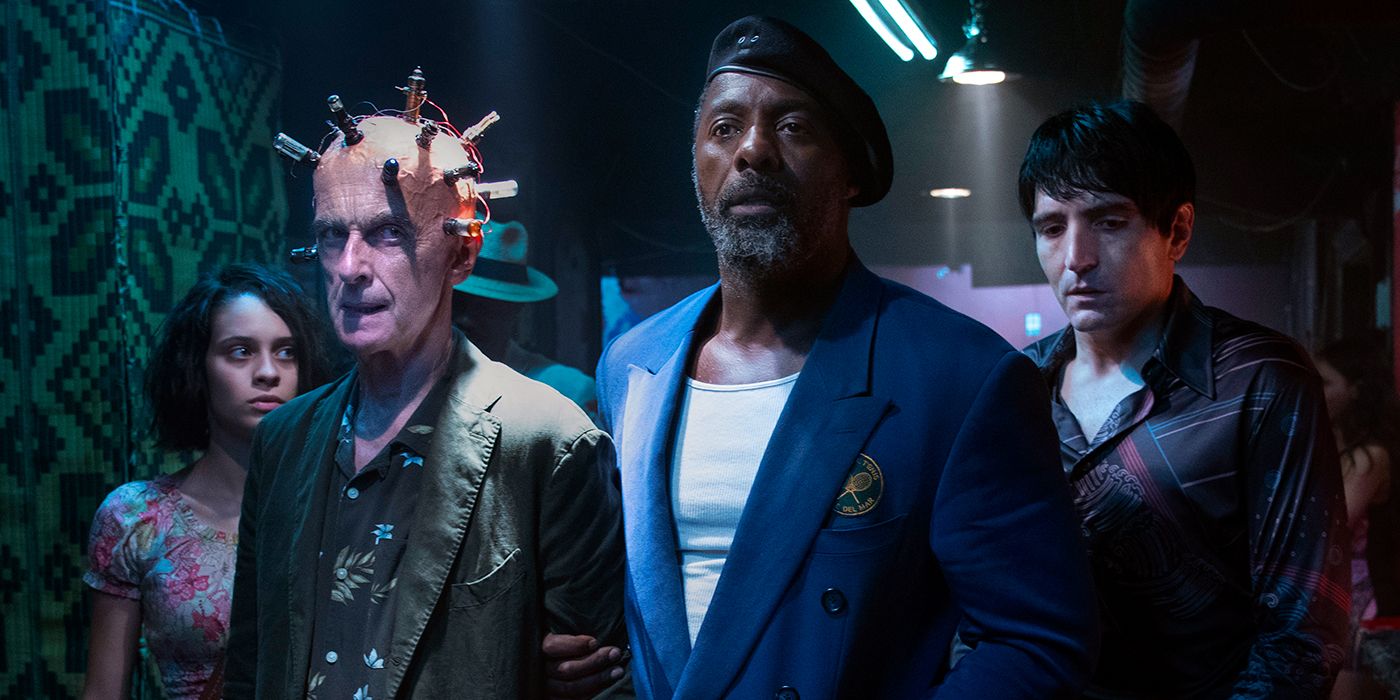
Trolls have been around almost as long as the internet, and high-profile movies remain a tempting target for self-styled sabotage artists of all stripes. This is especially true for shared universes like Marvel and DC, with gatekeepers demanding limited specifics of tone and content for characters who have become public institutions in all but name. When a filmmaker or a studio crosses one of those invisible lines, the online backlash can be intense. The latest tactic is “review-bombing:” leaving massive numbers of one-star reviews on sites like IMDB and Rotten Tomatoes. The intent is to make a statement about the studio’s decisions, rather than a good-faith assessment of the movie’s qualities.
Warner Bros., in particular, has suffered a wave of review-bombings in 2021, largely instigated by fans of director Zack Snyder, who feel his take on the DC Extended Universe hasn’t received sufficient support. That began earlier this year with the release of Godzilla vs. Kong and continues in the wake of an overwhelmingly positive early critical response to James Gunn’s The Suicide Squad. Angry fans clearly see review-bombing as an acceptable tool for influencing change. But is it effective? From a practical perspective, the answer is no. Box office returns simply don't lie.

Of course, The Suicide Squad nor Godzilla vs. Kong are hardly the first movies to experience this kind of backlash. For example, in response to perceived spoilers in early reviews of 2012's The Dark Knight, angry fans lashed out on Rotten Tomatoes, leading the review-aggregator site to temporarily suspend comments by first-time users. Following a targeted review-bombing in 2019 over remarks made by Captain Marvel star Brie Larson, Rotten Tomatoes made changes to its policies that removed the "Want to See" score, and disabled user comments until after a film's release. And similar troll wars over Star Wars: The Last Jedi garnered almost as much online attention as the movie itself.
The intention needn’t be illegitimate, even if the methods are. Fan input can be vital to securing the release of alternate cuts and other content the studio might not otherwise be inclined to make available. The #ReleaseTheSnyderCut campaign, in particular, garnered more than a million tweets, and played a significant role in inducing HBO Max to release Zack Snyder's vision of Justice League.
That, however, entails releasing new content rather than restricting existing content, or punishing a film simply because a percentage of the audience disagrees with the perceived creative choices of its makers. The same movement that made the Snyder Cut a reality rapidly turned against other Warner Bros. films in an effort to influence their decision-making on other projects. More specifically, they felt that James Gunn’s new take on the Suicide Squad was creatively incompatible with the SnyderVerse, notably by featuring deliberately ridiculous characters such as Polka-Dot Man and Starro. To be clear, Snyder himself has never endorsed such tactics and remains widely supportive of his fellow filmmakers, while Gunn reliably maintains that only a small number of Snyderverse fans are engaged in review-bombing.

Nevertheless, the question remains whether review-bombing is a useful tool in inducing the changes its users demand. Judging by box-office returns, it’s extremely unlikely. Despite their social-media controversies, both Captain Marvel and The Last Jedi were box-office hits. But while Godzilla vs. Kong's success was hardly on the same level, its comparative struggles at the box office had more to do with the impact of COVID-19 and the relatively new phenomenon of same-day streaming that it did with an organized review-bombing.
Indeed, the only prominent case in which such tactics may have hurt a movie was the 2016 Ghostbusters reboot. However, in that instance, backlash began virtually from the moment the project was announced, and only grew with time, so it seems unlikely that review-bombing played much of a role in the commercial failure of the supernatural comedy.
While The Suicide Squad’s box-office fate has yet to be written, early critical response, overseas performance and audience enthusiasm are reasons for optimism.
Unfortunately, review-bombing doesn’t look to be stopping anytime soon. Disgruntled fans have also employed the tactic against TV shows such as HBO's Watchmen and Netflix’s Masters of the Universe: Revelation. With summer controversies swirling around such topics as Alex Kurtzman’s renewed contract for Star Trek shows on Paramount+, and inclusiveness becoming an increased focus for producers, directors and writers, the remainder of 2021 is likely to see more instances of targeted campaigns. However, studios, networks and streaming platforms don't appear to be worried.
Audience ratings can be auseful tool, as well as a means of genuinely egalitarian exchanges over a given movie's content. When that tool is appropriated for gatekeeping purposes, it hurts only the tool itself, as well as countless good-faith fans who contribute to such ratings systems in the spirit of healthy debate. Review-bombing might make a temporary splash on social media, but as a means of engaging creators in a meaningful way, the evidence simply isn’t there. It becomes simply trolling by other means, with no validity or legitimacy beyond that. Hollywood seems to be treating it accordingly.
0 Comments